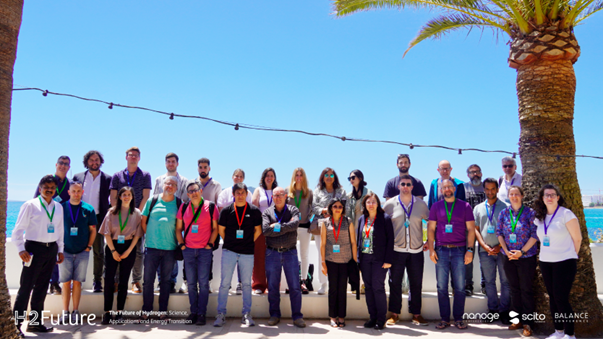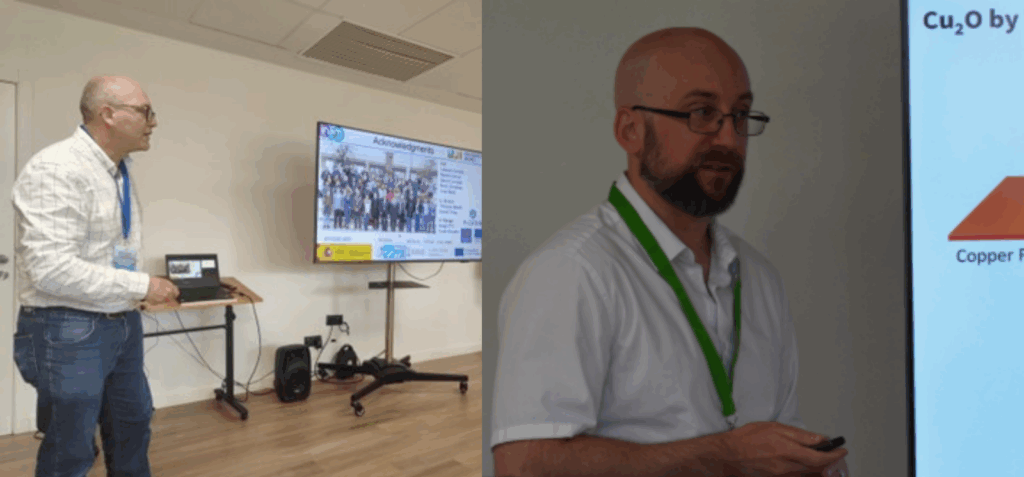The PECATHS project was prominently featured at the nanoGe Conference on The Future of Hydrogen: Science, Applications and Energy Transition (H2Future25), which took place from May 5–7 in Ibiza. This significant event convened top experts from across the entire hydrogen value chain, encompassing science, infrastructure, and policy, to delve into hydrogen’s crucial role in the global shift towards a sustainable energy future.

PECATHS Research Contributions at H2Future25
PECATHS researchers presented groundbreaking work, underscoring the project’s commitment to advancing hydrogen technologies and sustainable energy solutions:
- Francisco Fabregat (UJI) – Oral Presentation:
His talk, “Conversion of biomass derivatives into added value products: How capacitance analysis may help to optimize the process,” showcased PECATHS research on electrochemical biomass conversion. Francisco highlighted how capacitance analysis is instrumental in uncovering the underlying mechanisms of oxidation and reduction reactions, emphasizing the utility of impedance spectroscopy for optimizing reaction performance and enhancing sustainability in industrial settings.
- David Tilley (UZH) – Invited Speaker:
David’s presentation, “Cuprous Oxide for Solar Water Splitting,” detailed the latest advancements from his laboratory concerning Cu2O thin films and particulate systems for solar-driven hydrogen production. He presented compelling results for both photocathodes and photoanodes, as well as innovative artificial leaf-type systems that integrate water splitting with the production of value-added chemicals.
- Jose A. Mata (UJI) was also in attendance, reinforcing PECATHS’ collaborative presence and engagement at this essential cross-disciplinary conference.

Fostering Collaboration for a Decarbonized Future
H2Future25 served as an invaluable platform for sharing insights, bridging the gap between cutting-edge research and practical real-world applications, and exploring the vital contributions of hydrogen and materials science in achieving a decarbonized future. The PECATHS project continues to play a pivotal role in these efforts, driving innovation in sustainable energy.